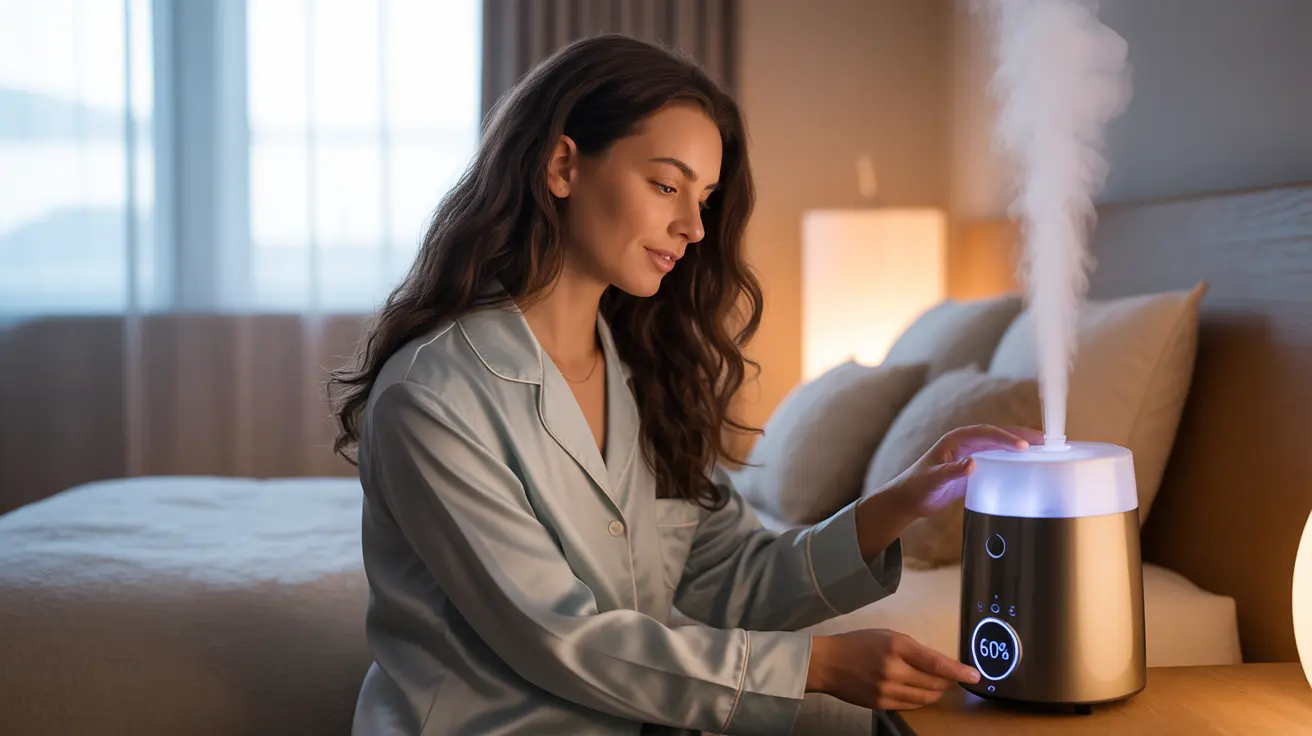Waking up feeling intensely thirsty at night can be both frustrating and concerning. This common experience affects many people and can significantly impact sleep quality and overall well-being. Understanding why you're so thirsty at night is the first step toward finding an effective solution.
While occasional nighttime thirst is normal, persistent or excessive thirst during sleeping hours might indicate underlying issues that deserve attention. Let's explore the various causes of nighttime thirst and discover practical ways to address this common concern.
Common Causes of Nighttime Thirst
Lifestyle and Environmental Factors
Several everyday habits and environmental conditions can contribute to feeling thirsty at night:
- Dry air in the bedroom
- Mouth breathing during sleep
- Spicy or salty foods before bedtime
- Insufficient water intake during the day
- Excessive alcohol or caffeine consumption
- Strenuous evening exercise
Medication-Related Causes
Various medications can increase thirst and urination, particularly affecting you during nighttime hours:
- Diuretics
- Blood pressure medications
- Antidepressants
- Antihistamines
- Certain psychiatric medications
Medical Conditions That Increase Nighttime Thirst
Sometimes, excessive thirst at night can signal underlying health conditions that require medical attention:
Diabetes
Both Type 1 and Type 2 diabetes can cause increased thirst, especially at night. This occurs when blood sugar levels are elevated, leading to increased urination and subsequent thirst.
Sleep Apnea
People with sleep apnea often experience dry mouth and increased thirst due to mouth breathing during sleep. This condition can significantly impact both sleep quality and hydration status.
Other Medical Conditions
Additional health issues that may cause nighttime thirst include:
- Diabetes insipidus
- Anemia
- Kidney problems
- Hormonal imbalances
Prevention and Management Strategies
Lifestyle Modifications
Simple changes to your daily routine can help reduce nighttime thirst:
- Stay well-hydrated throughout the day
- Limit salt intake, especially in the evening
- Use a humidifier in your bedroom
- Avoid alcohol and caffeine close to bedtime
- Practice good sleep hygiene
When to Seek Medical Help
Consider consulting a healthcare provider if you experience:
- Persistent excessive thirst despite lifestyle changes
- Unexplained weight loss
- Frequent urination
- Chronic fatigue
- Other concerning symptoms
Frequently Asked Questions
Why do I wake up feeling very thirsty at night and how can I stop it?
You might wake up thirsty due to environmental factors like dry air, mouth breathing, or dehydration. To prevent this, maintain good hydration during the day, use a humidifier, and address any underlying sleep issues like mouth breathing.
Can certain medications cause increased thirst during the night?
Yes, several medications can cause increased thirst, including diuretics, blood pressure medications, and antidepressants. If you suspect your medication is causing excessive thirst, consult your healthcare provider about potential alternatives or timing adjustments.
How do diet and lifestyle choices affect nighttime thirst?
Diet and lifestyle significantly impact nighttime thirst. Consuming salty foods, alcohol, or caffeine, especially late in the day, can increase thirst. Regular exercise and balanced hydration throughout the day can help prevent nighttime thirst.
When should I see a doctor about persistent thirst at night?
Consult a doctor if you experience persistent nighttime thirst accompanied by frequent urination, unexplained weight loss, excessive fatigue, or if the thirst significantly disrupts your sleep pattern.
What medical conditions can cause excessive thirst that wakes me up at night?
Several medical conditions can cause excessive nighttime thirst, including diabetes, sleep apnea, diabetes insipidus, and kidney problems. These conditions often have additional symptoms and require proper medical evaluation and treatment.




